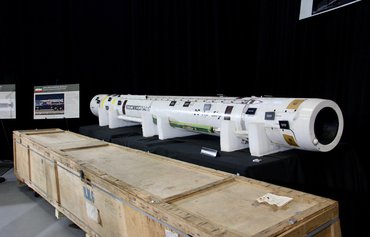US Central Command chief Kenneth McKenzie pledged Thursday (July 18th) to work "aggressively" to ensure maritime safety in strategic Gulf waters after a spate of attacks blamed on Iran, AFP reported.
"We are currently talking with the international community about the importance of the right of freedom of navigation in the Middle East," McKenzie told reporters at Prince Sultan air base near Riyadh.
"We are going to work very aggressively with our partners... to come to a solution that will enable the free passage of critical oil and other commodities... through the region."
His comment comes after US General Joseph Dunford, chairman of the Joint Chiefs of Staff, last week said the US aims to form a coalition to guarantee freedom of navigation in the Gulf amid fraught relations between Washington and Tehran.
Iran's Islamic Revolutionary Guard Corps (IRGC) said Thursday they had detained a "foreign tanker" and its crew for allegedly smuggling fuel in the Gulf, in the latest incident to send tensions soaring in the region.
The tanker was seized on Sunday "south of the (Iranian) island of Larak" in the strategic Strait of Hormuz, the force's Sepahnews website said.
The IRGC did not detail the name or provenance of the vessel.
The announcement comes two days after Iran said it had come to the aid of a foreign tanker after receiving a distress call -- making no mention of the vessel being seized.
Tensions in the area -- through which nearly a third of the world's oil is transported -- have spiked in recent weeks, with the US blaming Iran for multiple attacks on tanker ships in the region, and Tehran shooting down an American drone.
US Secretary of State Mike Pompeo said last month that he hopes more than 20 countries, including the UAE and Saudi Arabia, would work together on building maritime security.
McKenzie said the US was in "exploratory talks" with potential partners to ensure free passage through strategic waterways, including the Strait of Hormuz.
This is "not a US problem, it's an international problem... We are eager to be part of an international solution", McKenzie added.





